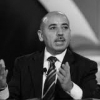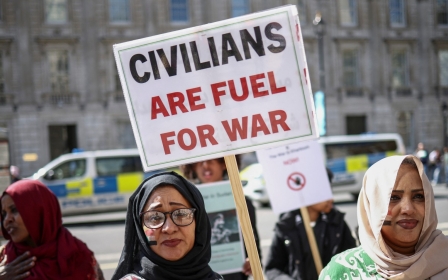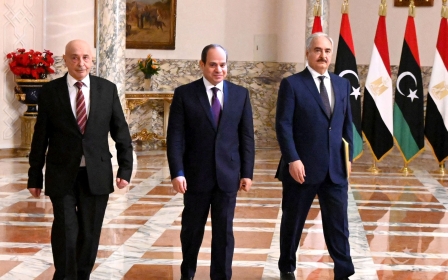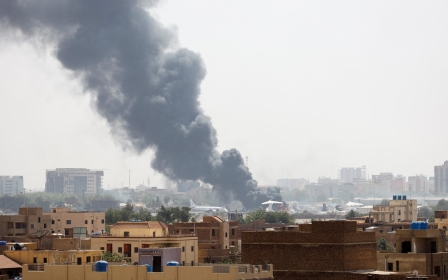Sudan crisis could derail peace efforts in Libya
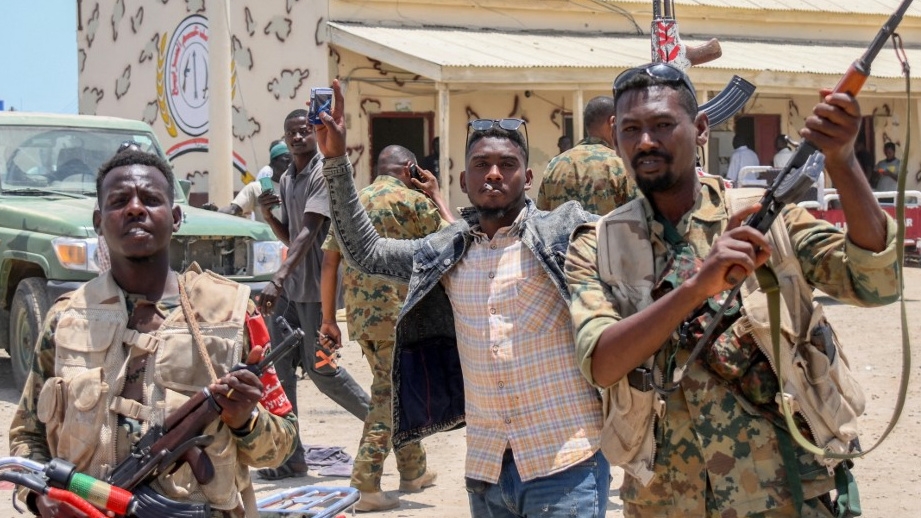
The ongoing Sudan conflict cannot be isolated from the country’s neighbours, especially Libya, which shares a border to the southeast with Sudan that suffers from a lack of government controls, allowing for open movement across it. Consequently, the Sudanese crisis could have significant ramifications for Libya.
Armed groups from Sudan and Chad have been able to exploit the vacuum across the vast area of southern Libya and establish a strong presence there. Chadian military groups have used southern Libya to launch attacks on their government, and Sudanese groups have historically done the same.
The main Sudanese armed group with a strong military presence in southern Libya is the Janjaweed, which originates from the Arab tribes of the western Darfur region of Sudan. This group gave rise to the Rapid Support Forces (RSF) under the command of Mohamed Hamdan Dagalo, also known as Hemeti.
Janjaweed forces have been recruited to fight alongside General Khalifa Haftar’s troops in Libya since he started his 2014 military campaign to take control of the country by force. The UAE has coordinated with Hemeti to send these mercenaries to bolster Haftar’s military forces. Hemeti has gained financially from sending fighters to Haftar, similar to arrangements he made with the UAE in Yemen.
Another foreign military force heavily involved in the region is Russia’s Wagner mercenary group, which has sent thousands of fighters to Libya to support Haftar, controlling vital oil installations and military bases in the east and south. Wagner has used Libya as a strategic launchpad to move into Chad, Mali, the Central African Republic and Sudan.
New MEE newsletter: Jerusalem Dispatch
Sign up to get the latest insights and analysis on Israel-Palestine, alongside Turkey Unpacked and other MEE newsletters
The Wagner Group is believed to have entered Sudan a few years ago and built a strong relationship with Hemeti and his paramilitary RSF forces, cooperating on activities in central Africa and gold mining in Sudan.
Members of the RSF are believed to have protected Russian merchants who sought to buy gold from miners in Sudan. Hemeti, who controls a majority of the gold mining operations in Sudan, is also benefiting financially from the sale of gold to Russia and the UAE.
Movement of fighters
If the fighting in Sudan continues for a long period, it could easily spill over into southern Libya and possibly other neighbours, risking a regional war. The fragility of southern Libya was highlighted recently by the US, which in March unveiled its “10-year strategic plan” to promote stability in Libya.
The plan noted: “Southern Libya is of particular focus as malign actors take advantage of fragile local governance systems to seek safe havens for terrorist and illicit activities.” It proposed four key objectives, one of which sets out the need for Libya to integrate the historically marginalised southern region “into national structures, leading to broader unification and securing the Southern border”.
A likely implication of the Sudan conflict is a further delay in Libya's elusive political transition, with elections unlikely to take place this year
There are credible reports of a long supply line of fighters, weapons and fuel organised by the UAE, Haftar and the Wagner Group through the southeastern border of Libya into Sudan to support the RSF. This could fuel the conflict further and plunge Sudan into a devastating long war, with consequences for the whole region, while also directly involving Libya in the conflict.
One potential ramification of the regular movement of fighters between Sudan and Libya is that the dynamics of the RSF’s presence in Libya could shift. Hemeti may call upon many of these fighters to return to Sudan to bolster his chances of winning the war.
Meanwhile, a defeat for the RSF could prompt thousands of its fighters to flee to Libya to escape being hunted down by the Sudanese army, headed by Abdel Fattah al-Burhan.
Theoretically, Haftar could benefit from both scenarios. If his ally Hemeti wins the war and controls Sudan, this could strengthen Haftar's own position and embolden him further within Libya, making an end to the Libya conflict even more elusive. Conversely, the defeat of Hemeti could lead to Haftar being propped up by an influx of Janjaweed fighters taking refuge in Libya.
The trajectory of the Sudan crisis will likely lead to a prolonged conflict with devastating consequences for the people of Sudan, and detrimental effects on neighbouring countries, especially Libya.
The potential exodus of Sudanese refugees into the south of Libya could precipitate a humanitarian crisis, especially as the south lacks governmental structures and basic services to cater to large numbers of refugees.
Stalled peace efforts
The fragile, slow peace process in Libya is also likely to stall further, with specific milestones and goals for institutional unification and elections not realised as planned - especially with the international community shifting its focus to containing the crisis in Sudan, rather than resolving the conflict in Libya.
One objective set out by the UN Support Mission in Libya and supported by the US and its allies is to press the two main Libyan sides in the east and west to establish a joint military force that could fill the security vacuum across the south, where foreign military groups are roaming freely.
Another clear objective for Washington and its European allies is to pressure these foreign military groups in the south of Libya, especially the Wagner mercenaries, to leave the country. As a result of the outbreak of conflict in Sudan, and the reported involvement of Haftar and the Wagner group in supporting the RSF, efforts to form a joint Libyan force and get Wagner out of Libya will likely be hindered.
Fresh elections to renew political legitimacy in Libya have been proposed to take place by the end of 2023. The UN special envoy to Libya, Abdoulaye Bathily, has been persuading reluctant stakeholders, especially the House of Representatives in Benghazi and the High Council of State in Tripoli, to proceed with election plans and agree on the necessary legislative basis.
These reluctant sides are now likely to use the violence and instability in neighbouring Sudan as a disingenuous excuse to evade any commitment to elections, in order to prolong their grip on power.
Thus, a likely implication of the Sudan conflict for Libya points to a further delay in the elusive political transition, with elections unlikely to take place this year, raising the risks of even more political polarisation and instability - and potentially weakening further any economic growth prospects for the coming years.
The views expressed in this article belong to the author and do not necessarily reflect the editorial policy of Middle East Eye.
This article is available in French on Middle East Eye French edition.
Middle East Eye delivers independent and unrivalled coverage and analysis of the Middle East, North Africa and beyond. To learn more about republishing this content and the associated fees, please fill out this form. More about MEE can be found here.


